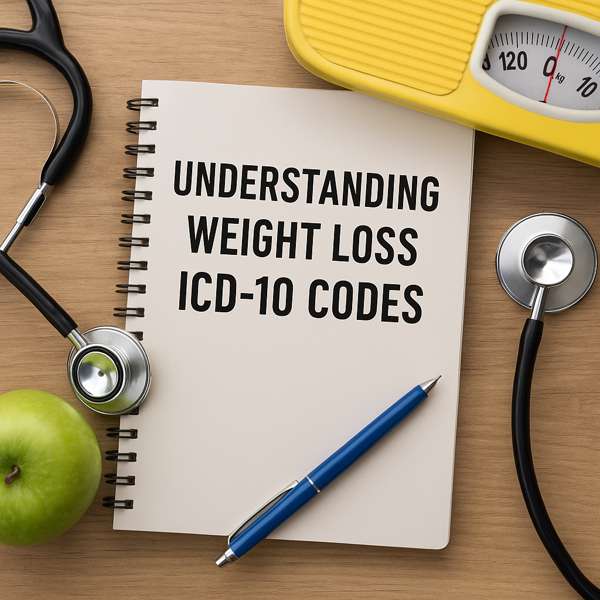
In the world of healthcare, accurate coding is vital — especially when it comes to documenting weight loss.
In this article, we’ll break down what ICD-10 codes are used for weight loss, how to apply them, and what you should know for accurate recordkeeping.
ICD-10 Basics Explained
It’s a standardized system used worldwide for classifying medical conditions and diseases.
Each diagnosis is assigned a unique code, which is used for:
- Submitting claims to health providers
- Tracking public health trends
- Clinical documentation
ICD-10 Codes for Weight Loss
Weight loss can be intentional or unintentional — and each situation has a specific ICD-10 code.
Key codes include:
- R63.4 – Abnormal Weight Loss
This code applies when a patient loses a significant amount of weight without trying, often due to illness.
- Z71.3 – Dietary Counseling and Surveillance
Often applied in cases involving nutritional intervention or guidance.
- Indicates poor nutrition or unhealthy patterns impacting weight
- Used in contrast to weight loss when monitoring obesity treatment progress
- Applied in extreme undernutrition cases, often linked with weight loss
When to Use R63.4 for Weight Loss
Use R63.4 when:
- There is no intentional diet or fitness program involved
- A known condition doesn’t fully explain the weight change
- Used as part of diagnostic workup
Tips for Correct ICD-10 Weight Loss Usage
To avoid claim denials or coding errors:
- Always specify if weight loss is intentional or not
- Document related symptoms or conditions
- Support your claim with a full picture
- Avoid using obesity and weight loss codes together unless clinically justified
Supporting Preventive Care Through Proper Codes
If you’re coding for a structured weight loss program or health coaching, consider using these Z-codes:
- For nutrition-based support
- Z76.89 – Person Encountering Health Services for Other Reasons
- Used in early evaluation settings
These codes can support insurance claims for wellness, prevention, and obesity treatment plans.
Ensure Documentation is Clear and Compliant
Using the right ICD-10 code visit for weight loss is crucial for clear documentation and proper billing.
To summarize:
- R63.4 = Unintentional weight loss
- Z-codes = Counseling, prevention, and health maintenance
- Use when weight loss is tied to illness
Always consult coding guidelines and payer policies when applying ICD-10 codes.